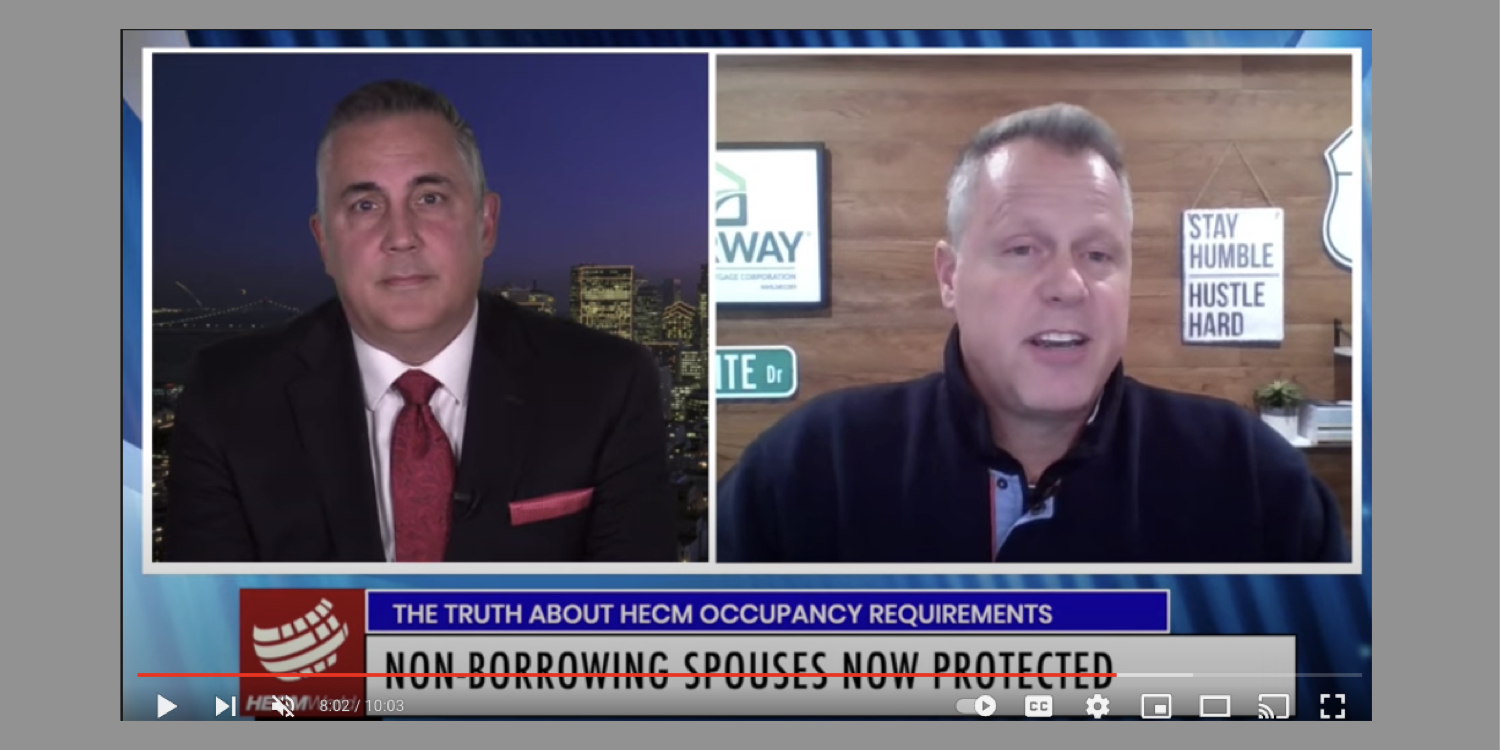AARP research found that two in five workers, or forty percent of those aged 50 or older would not have retired, left a job, or even considered retiring had it not been for the coronavirus or COVID-19 pandemic.
Continue readingIt’s time for retirees to prepare for war, inflation, and stock market losses
The world can be a frightening place for savers and non-savers alike. The Russian invasion of Ukraine and a teetering stock market…
Continue readingSenior housing wealth grows as inflation surges
We are likely headed toward an era of historic inflation in the United States. Not the news one wants, especially if they’re retired. However, there’s one safe haven for millions of senior homeowners; their home.
Continue readingWaiting for the reverse mortgage surge
Whatever happened to the mainstreaming of reverse mortgages in retirement plans? That’s a question addressed in a recent Wealth Management column…
Continue readingThe Three Horseman of the Retirement Apocalypse
The Three Horsemen of the Retirement Apocalypse
There are three things that commonly wipe out retirees’ savings or at least ensure misery and worry throughout one’s retirement. Let’s call them the three horsemen of the retirement apocalypse: credit card debt, health emergencies, and overspending. Unfortunately, it’s not uncommon for one or more of these dark riders to invade the lives of older Americans living on a fixed income. The first is…
———— JUST RELEASED: JANUARY TOP 100 RETAIL HECM LENDERS REPORT ————
[read more]
Credit Card Debt: The First Horseman
A recent survey by Clever reveals that 67% of Americans are carrying credit card debt. That is they’re not paying them off each month. Not surprising considering that the Bureau of Labor and Statistics reports retired Americans are outspending their annual income by $4,000. While retirees typically rely on savings or investments to cover the shortfall, many fall back on credit card purchases. It’s a painless choice in the moment that ensures financial pain in the future. Even more dangerous is the fact that retirees carrying credit card debt are enjoying relatively low-interest rates. However, as the Federal Reserve increases interest rates in 2022 and beyond, retirees will find their minimum payments increasing at a time they can least afford it.
Health Emergencies: The Second Horseman
The employee benefit research institute says a 65-year-old man would need to save $72,000 just to have a 50% chance of affording healthcare expenses in retirement.
Those who mistakenly believe that Medicare will cover all medical expenses have a big surprise coming to them. Medicare does not cover prescription drugs long-term care doctor bills and co-pays auto care routine vision checks and hearing aids. All of which are the common medical expenses seniors incur. This is why it is wise for every retiree to have a Medicare supplement plan in place as well as a modest dental and vision plan. While the premiums for supplement plans increase each year they pale in comparison to medical expenses not covered under Medicare Parts A and B.
Overspending: The Third Horseman
A majority of retirees regret not saving more or retiring later. A study by the Employee Benefit Research Institute may reveal why. It found 46% of retired households actually spend more in the first two years of retirement than they did during their final working years. The Institute also found 85% of retirees who spent 20% or more on medical expenses had a budget deficit. Overall is the retiree’s spending habits during their working years often predict their future spending habits. Practically speaking retirees can often reduce their expenses by paring down to one vehicle saving on maintenance and insurance costs. Additional savings may be found in menu planning before grocery shopping, locking up credit cards in the family safe, and canceling subscriptions to shopping catalogs. Often older retirees struggle with loneliness and a lack of purpose- both of which can trigger depression and the temptation to comfort themself with purchases; what we commonly call retail therapy. This can create a negative cycle that begins with regret for the purchase, sadness at their choice, and shopping to lift their spirits.
Banishing financial nightmares
There are several options one can use to banish these threats to financial security in retirement. One is to return to part-time work to cover monthly expenses. Another is to consolidate debt with a credit card balance transfer or personal consolidation loan. Another is to tap into your home value with a reverse mortgage. Using a home equity line of credit is not a wise choice for someone who’s already struggling to meet monthly expenses. A reverse mortgage generates immediate cash flow either by eliminating the existing mortgage principal and interest payments or by providing a line of credit that can be tapped into when needed. Retirement can be wrought with uncertainty and worry. However, knowing where the common threats to retirement come from is the first step to a more worry-free retirement.
Share your comments on today’s show below.
. [/read]
Prepping for Inflation and an Uncertain Economy with a Reverse Mortgage
Why reverse mortgages are more important than ever during economic uncertainty
Much damage has been to the U.S. economy in the last two years. The Covid-19 pandemic coupled with shutdowns, and central banks’ efforts to stimulate the economy have left the financial markets and world economies on the precipice of a deep recession or worse.
Just as economists in 2007 didn’t see the signs of the 2008 financial crisis, today most economists predict a “return to normal”. However, one man sees things differently. Ray Dalio, a billionaire investor who founded one of the largest hedge funds predicted both the 2008 housing and financial crisis and the fallout from the coronavirus pandemic.
On CNBC’s Make it Dalio warned that a new economic collapse is at hand. Such a prediction is not as far-fetched as one may imagine with Russia amassing troops for a possible invasion of Ukraine and China’s repeated threats to invade Taiwan. War is an expensive business. With inflation already at a 40-year high, Americans are now beginning to feel the brunt of price hikes and supply shortages. And should the Federal Reserve accelerate interest rate hikes, the financial markets are likely to fall leaving retirees in a precarious position.
Amidst this doom and gloom, there stands a glimmer of hope for older homeowners and retirees.
[read more]
The reverse mortgage. While generally dismissed and misunderstood reverse mortgages could be the saving grace for retirees who find themselves with diminished retirement savings in a market sell-off or pinched by inflation. How much equity are older homeowners sitting on? $9.5 trillion according to the National Reverse Mortgage Lenders Association and RiskSpan’s Reverse Mortgage Market Index. In fact, that figure surged by 8.3% in 2020 thanks to rising home values.
As one investor said, you only make money in markets you get out of in time. Financial professionals will tell you that attempting to time the stock market is a fool’s errand. But what about the timing of securing your fallback fund before home values fall?
Securing access to loan proceeds before you find yourself if a cash flow crisis is like buying an umbrella before it rains. That’s precisely what qualified older homeowners could do today by taking a reverse mortgage with today’s low-interest rates and high home values. Those with little or no outstanding mortgage balance can secure access to an open line of credit, which unlike a traditional HELOC cannot be reduced if home values should fall. Retirees then can take periodic withdrawals as needed either to offset the effects of inflation or losses in their retirement portfolio in a market sell-off.
Many chuckle at preppers or survivalists who prepare for a worst-case scenario; that is until a crisis hits. With today’s uncertain economy and the stock market poised for a reset, a reverse mortgage is truly a ‘loan of prudence’. Perhaps prepping for an economic crisis is the prudent course of action. Perhaps the days of treating a reverse mortgage as a ‘loan of last resort’ may no longer be in vogue. Even in a best-case scenario, those who’ve secured a portion of their home’s value stand to have financial flexibility stand prepared should hard times come.
What are your thoughts on using a reverse mortgage to prepare for an economic crisis and inflation? Share your comments below. [/read]
The truth about reverse mortgage occupancy rules
What are the actual occupancy rules for Home Equity Conversion Mortgages? The answer may surprise you as Dan Hultquist explains.
Continue readingShould you carry a mortgage into retirement?
There’s a shift in thinking when it comes to paying off your mortgage before retiring…
Continue reading2022 Outlook for the HECM & Housing Market
As the housing market goes, so does the HECM. One real estate economist makes these predictions for 2022.
Continue readingThe Top Stories of 2021
Here are the top stories of 2021. To learn more visit the links below…
Continue reading










